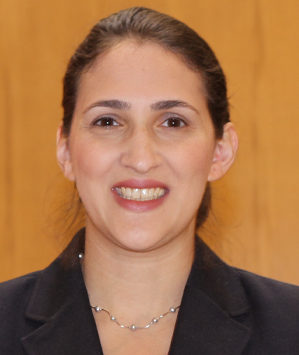We have come to the end of Genesis, and with it the conclusion of the stories of our matriarchs and patriarchs. For the last several weeks we have been engaged with the stories of the children of Jacob, focusing mainly on his favored son, Joseph. Now Joseph is on his deathbed. We are privy to an intimate glimpse of the last moments of life. At this moment, Joseph presents a request– “When God has taken notice of you, you shall carry my bones from here.” This final request, in the form of prophecy, allowed Joseph the opportunity to share his wishes with his descendants. This ancient tradition—sharing wisdom and requests with loved ones—often takes the form of an ethical will, and this practice remains as important today as it was in Biblical times. The request to carry his bones to the holy land was not merely Joseph’s instructions for burial, rather, it was his way of ensuring that the people kept his story, the story of the earliest years of Israelite history, close to their hearts.
In contemporary society, the ability to offer instructions and wisdom for after one’s death is often paired with the responsibility to make informed decisions regarding medical treatment during final days. Advancements in science and medicine provide us with extensive information about the trajectory of an illness. And with this information we are often faced with a number of choices. To prolong treatment or to choose palliative care. To enter into hospice at home or in a skilled facility.
The depths of these and other crucial questions—what doctors call “advance care planning”—are often too deep for an individual to wade through alone, or even with the support of family and friends. Skilled medical professionals are critical for providing information to help individuals understand conditions and allow them to make informed plans for their care as they approach the end of life. A recent national poll conducted by the Kaiser Family Foundation found that 89 percent of respondents said doctors should discuss end-of-life issues, yet only 17 percent reported having had such conversations with their physicians. Too often, this is because doctors cannot bill insurance for such consultations, so even if they wanted to have them, they simply may not have the time.
A major policy change has come into effect that will undoubtedly improve this statistic. After six years of politically charged controversy, Medicare recently authorized payment for medical care in the form of end of life discussions. The ability to engage one’s doctor in conversation for the purpose of best understanding the realities one is facing is a crucial element to preparing for the end of life—indeed, it is a human right. And according to the Kaiser Family Foundation, about three-quarters of the people who die each year in the United States are aged 65 or older, making Medicare the biggest insurer at the time of death. Where Medicare has gone, hopefully other insurance companies will follow.
Now that the health insurance companies are supporting these discussions, it is our responsibility to ask questions—to learn about our reality and partner with family, friends and medical professionals to make these challenging decisions.
In closing the Book of Genesis, we prepare to move forward in our people’s foundational narrative. In the coming weeks we will begin to see Egypt, once the land of abundance and opportunity, as a land of stifling limitations and unconquerable sorrows. The very meaning of the Hebrew word “Mitzrayim” elucidates this experience, as the term can be translated “from the narrow straits.” Mitzrayim has become a symbol for our people, both as an understanding of the sorrows that we have known, and as a paradigm for how we can overcome the obstacles that we face. Our collective memory of our time in Egypt can serve as a parallel for experiencing illness. On the one hand, we may feel paralyzed—stuck in the narrow straits. Yet as our narrative continues, it reminds us that we can gather our resources and move forward. We can find strength in God, loved ones, and community. We do not have to experience the narrow straits alone. Having professionals available to navigate the experience of terminal illness can help us free ourselves from the “narrow straits” and recognize the value of partnership on this sacred journey.
Kim Blumenthal serves as assistant rabbi of Beth Israel Congregation in Ann Arbor, Michigan.

